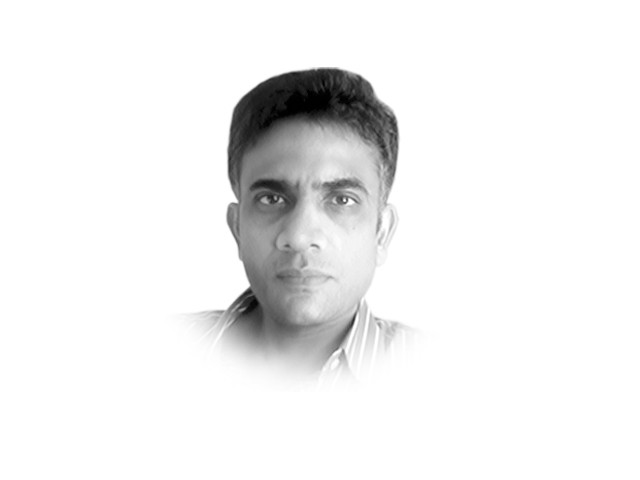One-nation theory
What I mean is how India, Pakistan are one nation in all the negative aspects.

This was when the government made airports, and as with all things the Indian government takes up, our airports were clumsy and barely functional. But a few years later this changed. Today the airports at Mumbai, Delhi and Bangalore are pretty good. They are not world class (nothing in India can ever be), but they are not embarrassing as the earlier ones were.
The differences that I had thought were significant, turned out not to be so.
This led me to think of how similar we were as nations. Not in the sense that Mohammad Ali Jinnah meant. I think it is fairly obvious that the character of India and of Pakistan is different when we observe their Constitutions. India’s secularism is fundamentally Hindu in its nature. Pakistan’s Constitution is Islamic by design and in appearance. Though this is an important aspect of nationhood, it is only one aspect.
What I mean is how we are one nation in all the negative aspects. It is difficult to find a country whose people are more filthy than those in India and Pakistan. Our neighbourhoods and streets are among the most shameful in the world because we are selfish and blind to the concern of others. Delhi’s drivers are as terrible as those in Lahore (and the women of Delhi and Lahore would concur on the behaviour of the loutish men of those cities). Half of us are illiterate and the half who are literate don’t really read much. The comments sections of Indian and Pakistani websites are the most dreadful in the world, without qualification. Hateful and pedantic, the product of minds who are only functionally literate. We think time will bring some big change in our society but it is not easy to see where this change is going to come from.
I know of few other nations where people would not be embarrassed at the thought of keeping servants. Few cultures would be so unaffected, so uncaring of privacy to not mind the constant presence of a servant in the house. I am not even talking about the bestial manner in which we treat them, because every reader of this piece, whether Indian or Pakistani already knows what I mean.
We divide ourselves into nations based on things like which animal the other eats or does not eat. The outsider probably sees no difference between us, and rightly so.
We produce very little that is of meaning to the outside world, and it is tough to think of what our contribution is to the nations from whom we take so much. In science and technology we have nothing to offer the West, despite the boasts of Indians that we gave the world Arabic numerals and zero (I agree with that; we have given the world zero).
Pakistanis stake claim to Islam’s golden age. The Jang columnist, Hassan Nisar, often takes up this point. He says that the Arabs laugh when Pakistanis own Islam’s achievements. What aspect of the conquest of Spain or the scientific revolution in Baghdad did Punjabis and Sindhis participate in?
To the world we are one people in that sense.
My friend Colonel (retd) Iftikhar, from General (retd) Pervez Musharraf’s batch in the Pakistan Military Academy, said he discovered this horrifying fact when he went to Makkah a few decades ago for Haj. He met some Saudis, one of whom asked him where he was from. “Lahore”, said Ifti. “Where’s that”, the Saudi asked (this was in the 1970s). “Pakistan”, said Ifti proudly. “Where’s that”, the puzzled Saudi asked. Ifti took out a map and pointed. “Ah”, said the Saudi to his friends, “he’s Hindi”.
Our problems are so primitive that they should make us stop and mend ourselves immediately. But they don’t seem to affect us at all. Our media carry on like we are normal people. Reading the militant bombast of the strategic affairs experts in newspapers of these two nations, the outsider would never suspect that these were two nations unable to even keep their public toilets clean.
Published in The Express Tribune, April 22nd, 2012.















COMMENTS
Comments are moderated and generally will be posted if they are on-topic and not abusive.
For more information, please see our Comments FAQ